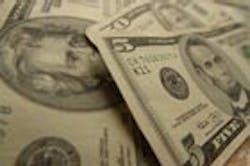GAO Report Studies Industry Taxes as Way to Close Wastewater Funding Gap
Over the next decade, wastewater infrastructure in the U.S. could face a funding gap of $150 billion to $400 billion, the U.S. Environmental Protection Agency (EPA) has warned.
Representatives James Oberstar (D-Minn.), John Mica (R-Fla.), John Boozman (R-Ark.) and Earl Blumenauer (D-Ore.) commissioned a U.S. Government Accountability Office (GAO) report to study ways of closing this funding gap, E&ENews PM reported.
Excise taxes on water pollutants such as beverages, fertilizers and pesticides, flushable products, pharmaceuticals and water appliances could generate about $10 billion in revenue to establish a clean water trust fund that would provide a dedicated source of money for infrastructure projects, the report said, although Congress may face resistance building stakeholder consensus regarding the taxes.
A water tax of 0.01 cent per gal could generate $1.3 billion annually, and an additional 0.1% income tax could raise about $1.4 billion a year, according to the study.
The GAO found that more than half of the drinking water industries, state and local governments, engineers and environmental groups surveyed supported excise taxes of fertilizers and pesticides and flushable products such as soaps, cooking oils and toiletries, and approximately half supported taxes on beverages and pharmaceuticals.
About a third of respondents supported taxes on water appliances and plumbing fixtures, and some had not yet taken a position. A small portion opposed a clean water trust fund, favoring self-sustaining utilities that charge their customers the real cost of building and maintaining the systems.
Most agreed that regardless of how the money is collected, it should go to capital projects rather than operations costs.
"Regardless of the options selected, certain implementation obstacles will have to be overcome," the report says. "These include defining products or activities to be taxed, establishing a collection and enforcement framework, and obtaining stakeholder support for a particular option or mix of options."
Oberstar chairs the House Transportation and Infrastructure Committee, which is scheduled to hold a hearing on establishing a clean water trust fund July 15.
Source: E&E News PM
